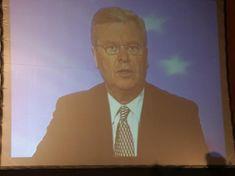
David Byrne, European commissioner for health and consumer protection, has given his backing to EurepGAP as a complementary standard to the wide-ranging work of the European Food Safety Authority. Through video link to the EurepGAP conference in Madrid, he said:
"Concerned by a number of recent food crises, 90 per cent of consumers in the EU have said that they want the European Commission to work to 'ensure that agricultural products are healthy and safe'. I try to accomplish this mission every day in a rational manner by covering the whole food chain, from farm to fork.
"My approach is to work with sound science, solid legislation, effective controls and comprehensible communication. Clear communication by the responsible authorities is a key part of fostering consumer confidence. The ultimate aim is to give consumers a choice between a wide variety of safe products. To respond to our citizens' demands, EU food legislation is one of the strictest in the world. At the same time it is proportionate to the risks posed by foodstuffs. Based on the risk assessment advice of the European Food Safety Authority (EFSA), I take decisions, taking into account how public health is best protected, but not forgetting that a zero-risk situation is impossible to achieve. Ultimately, regulation therefore needs to be managed by the EU food and feed producers themselves.
"The general EU legislation on traceability is fairly new but has quickly become a cornerstone of the EU's food safety policy. The traceability obligation for all food was introduced in the general food law from 2002 (Regulation 178/2002), which will be fully implemented as of 1 January 2005. The traceability obligation requires all food business operators to trace food products at least one step back and one step forward in the chain. The legislation itself is not very detailed but rather places the responsibility on the operators to establish workable methods.
"The reason for introducing this legislation was part of the general overhaul of food safety rules in the EU, aiming to facilitate the withdrawal of unsafe products and also to give consumers better information through improved labelling. For some products, specifically beef and genetically modified organisms, the legislation is much more detailed. Largely as a response to the BSE crisis of the 1990s, Regulation 1760/2000 includes very detailed measures for the traceability of beef products whereby it must be possible to trace back the history of each carcass or piece of meat to the individual or group of animals where it came from. The soon to be finalised general hygiene legislation also includes requirements for specific health and identification markings on meat products.
"Given the strong views of European consumers on the importance of food safety, this is an area in which harmonisation of legislation at EU level rather than setting different national standards is essential. The work of organisations like EurepGAP is key in this context, providing a framework for international verification. Consumer concern about food safety does not stop at the EU's borders but also applies to imports.
"That is why we have established the principle that all imports into the European Union must comply with the EU food safety standards. This applies to enlargement countries, where great efforts are currently being made to ensure that sufficient food safety standards are in place before accession to the EU. It also applies to our other valued trading partners, with whom we have good co-operation.
"The reform of the Common Agricultural Policy has paved the way to reduce the traditional link between production and subsidies - now we must focus on the production of quality products. There are new challenges for European producers and clearly production must be underpinned by high standards. EurepGAP complements and reinforces our own initiatives and our hope is that it will go from strength to strength."



